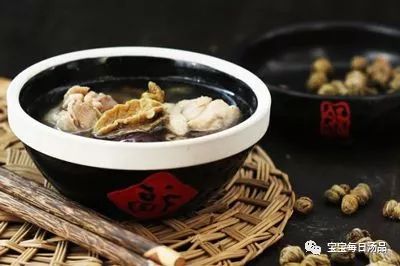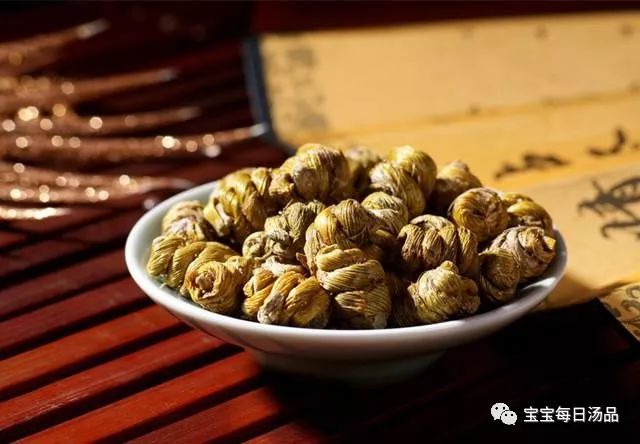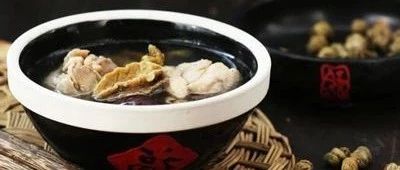
※ The image is for reference only; please refer to the actual ingredients for the final product.

Ingredients (for the whole family) (100ml for babies over 12 months, adjust for others)
6 pieces of dried abalone (4 pieces of fresh fish)
3g of Dendrobium (Shihu)
Half a skinless chicken
(For babies over 12 months with no allergies to the above ingredients)
Effects: Nourishes Yin, clears heat, tonifies the stomach, benefits essence, generates fluids, and alleviates thirst.

Steps
Chop the skinless chicken into pieces, blanch with ginger, and rinse with cold water.
Soak the dried abalone in the refrigerator for 48 hours in cold water, changing the water frequently.
After soaking, remove the beak and intestines (the top of the abalone), clean thoroughly, then boil the soaked abalone in a pot with purified water over high heat. After boiling, simmer for another half hour. If the abalone is still hard, cook for an additional 15 minutes.
After turning off the heat, cover the pot and let it sit for 6-8 hours. In hot weather, reduce the time to prevent spoilage of the abalone.
Put everything into the pot, bring to a boil over high heat, then reduce to low heat and simmer for 60 minutes.

Ingredient Analysis
Dendrobium (Shihu)

Dendrobium is distributed in China and regions such as India, Nepal, and Sikkim. It contains dendrobine, dendrobium amine, and dendrobium alkaloids, as well as mucilage and starch. It is rich in polysaccharides, which can promote lymphocyte division and enhance immune function.
1. Clears Empty Heat
The “Compendium of Materia Medica” and “Supplement to the Compendium” record that it “clears the stomach and eliminates empty heat” and “removes virtual heat from the stomach.” Compared to ordinary heat-clearing herbs, Dendrobium specifically addresses empty heat characterized by Yin deficiency and excess heat. Pharmacological experiments show that Dendrobium significantly reduces the peak fever and temperature response index in hyperthermic rabbits, shortening the duration of heat.
2. Nourishes Yin Fluids
The “Chinese Pharmacopoeia” states that it “specifically nourishes the qi and fluids of the lungs and stomach, invigorating the qi and fluids, allowing kidney water to generate itself,” indicating its effectiveness in nourishing Yin and generating fluids to treat symptoms of Yin deficiency and fluid depletion.
3. Tonifies the Spleen and Stomach
Dendrobium is a herb that benefits the stomach and generates fluids. It is recorded in both the “Shennong’s Classic of Materia Medica” and “Revised Materia Medica” and is commonly referred to as a “stomach herb” for treating stomach pain and upper abdominal distension. Modern experiments confirm that Dendrobium has a good inhibitory effect on Helicobacter pylori, a common pathogenic bacterium in spleen and stomach diseases, aiding in the treatment of atrophic gastritis, superficial gastritis, and duodenal ulcers associated with Helicobacter pylori positivity. Additionally, oral Dendrobium decoction can promote gastric juice secretion, enhance gastric emptying, and aid digestion.
4. Protects the Liver and Benefits the Gallbladder
Dendrobium has a good choleretic effect, and historical physicians have believed that “Tiepi Fengdou” nourishes liver Yin, making it a key herb for treating various liver and gallbladder diseases, including hepatitis, cholecystitis, and gallstones.
5. Nourishes the Skin
As a person enters middle age, the body’s Yin fluids decrease, accelerating skin aging, leading to darkening or wrinkling. Dendrobium contains a large amount of mucilage, which has a nourishing and moisturizing effect on the skin.
6. Strengthens Tendons and Bones
As people enter middle age, “Yin energy begins to decline” (Zhu Danxi), and the function of tendons and bones gradually diminishes. Dendrobium can nourish Yin fluids, which lubricate the joints, thus achieving the effects of strengthening tendons and bones, promoting joint flexibility, and enhancing resistance to rheumatism. Modern pharmacological research shows that Dendrobium can improve stress resistance and has good anti-fatigue and hypoxia tolerance effects.
7. Inhibits Tumors
Dendrobium has a cytotoxic effect on certain cells of lung cancer, ovarian cancer, and acute promyelocytic leukemia, exhibiting strong anti-tumor activity. Clinical studies indicate that Dendrobium can be used as an adjunct treatment for malignant tumors, improving symptoms in cancer patients, reducing side effects of radiotherapy and chemotherapy, enhancing immunity, improving quality of life, and prolonging survival time.
8. Promotes Longevity
The “Shennong’s Classic of Materia Medica” lists Dendrobium as a medicinal herb with “light body and longevity” effects. Modern research shows that Dendrobium contains various trace elements that are closely related to human health and longevity, and its anti-aging effects are broader and more comprehensive than those of general medicines.
If you like this soup recipe, please give a thumbs up below!

